
15 Aug India & Kashmir: here’s what’s going on. Jai Hind!
Today marks independent India’s 69th year of existence after British rule. A still nascent nation — the world’s most diverse country and its largest democracy too! — marches toward increasing global leadership. I am immensely proud to be Indian, to be a descendant of a civilization with more than 5,000 years of history. My passion for India, and the process of nation-building, inherently involves me in the challenge of forging a powerful, united country while maintaining the rich, ancient subcultures that comprise it.
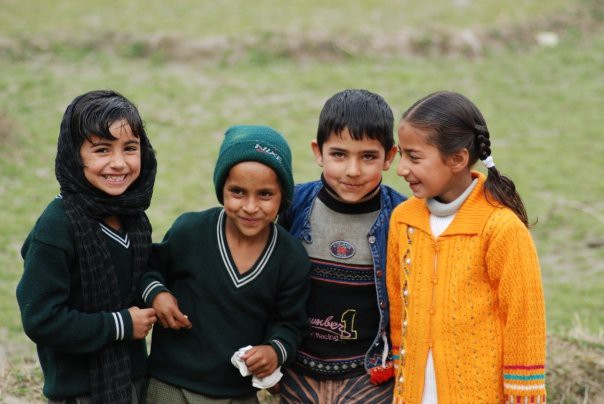
Beautiful children — both Hindu and Muslim, boys and girls — who are being held back by Kashmiri separatists.
In that vein, I want to discuss the raging circumstances in Kashmir today. I’m sure you’ve all seen a headline or 2 in the past couple months. It’s a troubling situation to have a separatist movement afoot, but India is still a young nation; indeed, it is easy to forget the United States nearly split in half 90 years into its existence as an independent country as it fought its dangerous Civil War. For the Indian experiment to work, India must consider territorial integrity to be of utmost importance — as did the US; protecting the Union was worth a war. With a state like Pakistan — which has launched 3 wars against India, the last one a particularly treacherous one less than 20 years ago — across the border, India has no choice but to amass its army in Kashmir. How to do so without alienating the local population is non-trivial, and is the contradiction that spurs recurring conflict.

Contemplating the Kashmiri dilemma on my last shikara ride in Srinagar, the main city of Kashmir Valley.
Kashmir is dear to my heart — my mother spent several summers there when she was young and I’ve been across the Valley several times myself, both in times of great unrest as well as in times of peace, to both the capital Srinagar and to far-flung districts like Poonch. It is also dear to the Indian experiment as it’s the only Muslim-majority state in the country. In the midst of today’s tense and overblown media rhetoric, it’s important to look at the situation from a factual perspective. What is going on?
What is happening today
The Kashmir Valley — 1 of 3 parts of the Indian state of Jammu & Kashmir — has seen unrest swell over the past few weeks after the neutralization of Burhan Wani — a man we Indians considered a misguided terrorist and one certain Kashmiris considered a freedom fighter. Burhan had fired up the imagination of certain youth using social media, openly flaunting his paramilitary attire and his desire to attack Indian army officers. Burhan has inspired many well-established youth who believe their lives are worth the struggle for independence. It’s a dangerous sentiment — why are they ready to make this sacrifice?
Kashmiris have been agitating for independence since 1947, when their King (Maharaja) signed the Instrument of Accession to join the nascent Indian republic. They have every right to demand independence — indeed, every group of people has the right to demand independence — as they’ve not fully tasted the fruit of being part of India. This does not, however, mean that they have the right to be an independent nation state just because they demand it. Such a policy would lead to greater balkanization in the region and, in turn, more war. That outcome is not stable, nor is it rational. As a proportion, few independence struggles across history have succeeded as very few were rational.
I believe some Kashmiris want independence because they believe the grass is greener on the other side, but I don’t think that’s true. The problem lies in Indian leadership’s inability to truly integrate Kashmir better into the country’s fabric — as a political, economic, and cultural entity — and to promote the benefits of the same. The people’s hearts have not been won. Without a tangible perception of the upside, and the easily deluded perception of the downside, decision-making based on risk-return can be heavily skewed toward the irrational for some.
In the absence of this strong leadership, there have been all kinds of false claims. Here are 3 false claims often made by the media:
False claim 1: Kashmir was historically an independent kingdom and has little to do with India.
While this is an irrelevant claim (the list of kingdoms that were at one point independent is indeed a very long one), it is also false. After the introduction of Islam in the 14th century, Kashmir has in fact hardly been independent. It has been successively ruled by the Shah Mir dynasty from the Swat, the Mughals, the Afghan Durranis, the Sikhs, and the Dogras (until Indian independence from the British). Its history, however, has been closely tied to that of the Indian subcontinent, territorially, culturally, linguistically, etc. Before the introduction of Islam, Kashmir was a bastion of Hindu learning, tied to others across India.

Model of a Kashmiri houseboat
An easy parallel people draw is that of China and Tibet. It aggrieves me — as it does most Indians — that Tibet is a part of China. But, the fact remains that it is and, furthermore, I can understand why China conquered it (this was straight invasion). What is far more difficult for me to accept is the open destruction of Tibetan culture, much like the early Americans destroyed Native American culture. India has done nothing of the sort in Kashmir — Kashmiri culture remains independent and free and there are no trains of other Indians being sent into Kashmir to homogenize the peoples. Kashmiris have destroyed their own culture over the years by succumbing to propaganda.
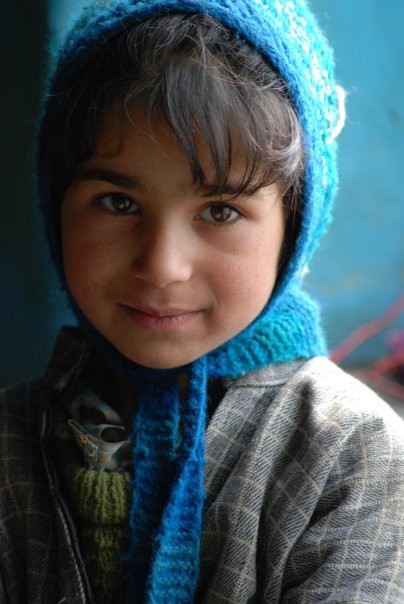
Tayiba, an orphaned girl whom I befriended. I doubt she received much of an opportunity to better her economic condition in today’s Kashmir.
True independence in today’s world is personal and economic independence, but how can that be achieved when the youth are being led to protest every week? They sustain themselves on government jobs, hardly a worthy aspiration. Instead of focusing on preserving culture and growing economic opportunity alongside the wider Indian juggernaut, Kashmiris have allowed both to stagnate in the pursuit of an independent nation state, largely thanks to certain individual leaders and the watchful eye of Pakistan. Children like Tayiba are the ones who suffer.
False claim 2: India forced or unethically coerced the Maharaja of Jammu & Kashmir to sign the Instrument of Accession to the Indian republic.
This claim is also proven false by history. In 1947, the newly-formed state of Pakistan was anxious to annex Kashmir. Given the premise of Pakistan was a homeland for South Asian Muslims, it would be a great repudiation of this thesis if a Muslim-majority state chose to remain with India (of course, the fact that India has as many Muslims as Pakistan — and that the Indian Muslims are better off — repudiates it anyway).
The founder of Pakistan, Mohammed Ali Jinnah, imposed an economic blockade in the hopes of forcing the Maharaja’s hand. This blockade failed, however, and Jinnah decided to try his country’s first daring military expedition; in a style that would define much of Pakistan’s ensuing decades of military endeavors, he sponsored a group of tribal Pathans to invade Kashmir. To save his state, the Maharaja had no choice but to ask for Indian military assistance. India, of course, was seeking an opportunity to press its case and the tradeoff for security ensured that the state of Jammu & Kashmir legally joined India. Consolidation was the regional trend and, in hindsight, it’s hard to argue with the Maharaja’s choice.
False claim 3: India promised a plebiscite would be held to let the Kashmiris determine their future.
Yes, there was a plebiscite promised when the Maharaja signed, but it was dependent on the removal of Pakistani troops from the entirety of Kashmir and this condition was never met (Pakistan continues to occupy a portion of Kashmir). Sheikh Abdullah, the leader of the Kashmiris and their independence struggle, was clear that he wished a plebiscite to occur once Pakistan abided by the conditions; however, by 1971 he had changed his mind entirely as he witnessed the situation in Pakistan, which had alienated half its country so much that it splintered. If West Pakistanis were capable of such treacherous behavior toward their fellow Muslims of East Pakistan (which in 1971 achieved independence as Bangladesh), what assurance was there that similar behavior would not be displayed to others? The religion card suddenly came undone.
As such, Sheikh Abdullah made the decision to sign away the need for plebiscite in the 1975 Accord between the Indian government and that of J&K. Thus, the matter of the plebiscite is irrelevant today. It ends up being a convenient lightening rod for local politicians though. Self-determination has not been the way of much of the world and is simply impractical today. Did the Confederacy have the right to secede? Did it matter?
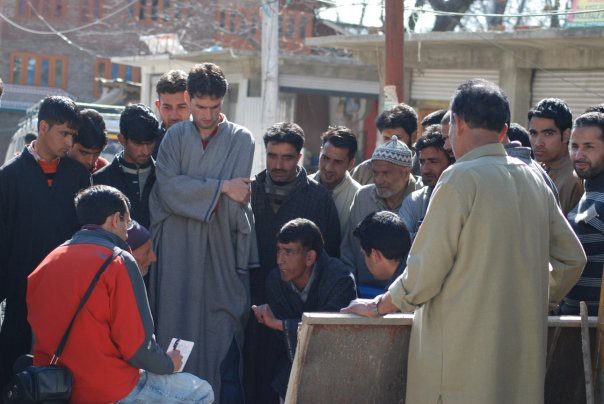
Listening and debating. Unfortunately, this doesn’t happen enough in Kashmir, as the local politicians are more interested in personal gain.
What has the Indian government done?
There is no doubt the Indian government has made many mistakes over the decades. Perhaps the biggest enemy — more than any religious communalism or even Pakistan — has been the corruption among the local ministers and public servants, which rendered the population bitter against a local government always viewed (rightly) as a proxy for the central government. Infamously, this led to rigged elections in 1988 among other travesties. Leaders have not stopped to listen.
Many people have been killed in the struggle between maintaining peace and preserving lives, and one cannot deny human rights abuses have occurred. In fact, one of the most searing memories I have is of visiting the father of a young man in the town of Sopore. His son had been accidentally killed by the Indian army the previous day. Amidst riots and protests, I sat down with the father and went through his old photo albums. He told me I reminded him of his son, and thanked me for coming, but I knew India had engendered an eternal enemy in that family and that community. It was particularly chilling when the Governor of the state later admitted to me in private that the young man had indeed been innocent.
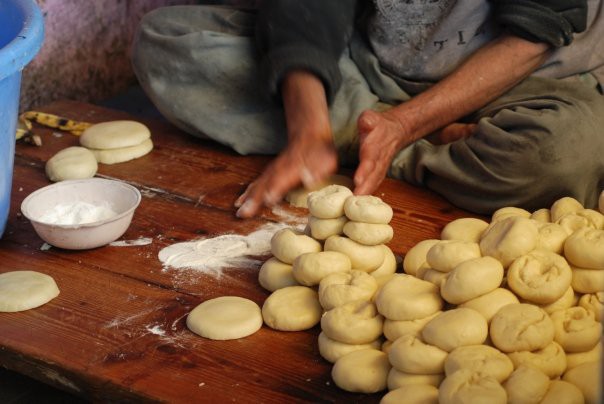
Kashmiri bread being prepared. Kashmiri cuisine, language, and culture all remain perfectly intact.
But it’s important to note what the Indian government has NOT done. India did not invade Kashmir. India has not wiped out the local Kashmiri culture (if anything, it has promoted it). No mosques have been demolished. India has engaged in dialogue many times. India has not deprived the state of resources; in fact it is the most highly subsidized state in the country. There is no special tax, only tax breaks. The loss of a relatively small number of lives over 7 decades — largely due to anti-India agendas — does not refute these facts.
Where to go from here?
Kashmir has always been a land of peace and it’s sad to see that change. Its form of Islam was historically predominantly Sufism and its mix of Hindus and Muslims was renowned. Over the past 30 years, we’ve seen more right-wing strains of Islam emerge under the financial cover of certain benefactors — it’s easy to place this trend in a wider global context. In 1990, certain Kashmiri Muslims violently ejected the Kashmiri Hindus (known as Kashmiri Pandits) from the land. Such intolerance is not Kashmiri, and must not succeed in its objective.
Indeed, it’s simply a matter of time. As noted, India is a very young nation, entering its 70th year of existence today. We are the most diverse nation in the world — by ethnicity, language, culture, religion, food, any lens really. I am proud that we have taken a path of democracy even in the face of such diversity, unlike some other nations faced with a similar decision.
The price of democracy, however, is time. India will require many more decades to find a way to grow in an entirely inclusive way, to find a way to create a fabric that enables such rich cultures to persist while still embracing a powerful identity of one of the world’s leading nation-states. The alternative, of course, is the Chinese model, the genesis of which was an authoritarian approach and a homogenized base.
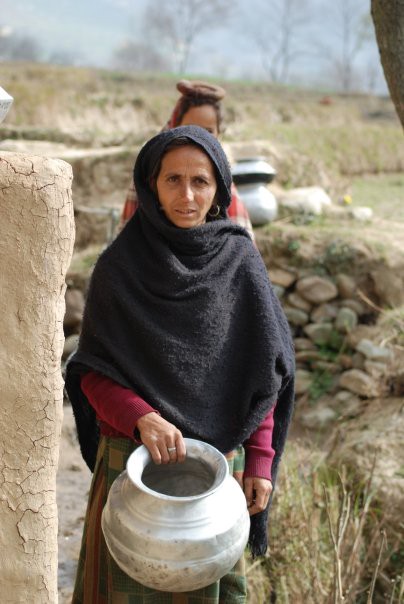
Is it fair for her to suffer just so some can agitate for azaadi?
As greater inclusion is achieved, we will witness a dissipating demand for independence in Kashmir. Human rights abuses will become rarer, and the Kashmiri people will appreciate the opportunity cost of agitation as they see their brethren succeed by embracing a modern India (which is only one generation old). They will also realize that fighting an ascendant India is markedly different than fighting a declining Britain. In the meantime, there will be riots, casualties; there will be disillusioned Kashmiris (and other minorities) and there will be Arundhati Roys clamoring for India to let Kashmir go.
But, you know what? You will hear them all for you hear all voices in India. India must not let go of its founding vision of the free, secular nation state of South Asia, for it is indeed one worth fighting for, and is the one Kashmir deserves. A strong and stable India is critical for the well-being of the world. I ask you all to keep that in mind.


